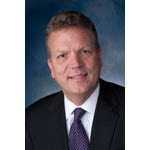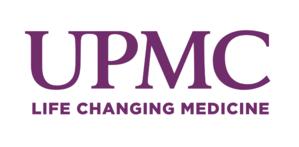Crisis Communication Planning Is Essential for Health Care Marketers

Paul Wood, vice president and chief communications officer at UPMC
What if your hospital is suddenly the center of national media attention for all the wrong reasons? What if a catastrophic event occurs and you must respond immediately? Do you know what to do? Do you have a crisis communications plan in place?
In our new article, Paul Wood, vice president and chief communications officer at UPMC, shares his firsthand account of a shooting at one of the organization’s facilities, an event that prompted UPMC to take a leadership role in crisis communications. Here’s an excerpt:
A routine day in health care communications is typically anything but routine. For our Pittsburgh-based UPMC public relations team, March 8, 2012 was a characteristically busy day. We had a full day of meetings and several directors were escorting a national reporter.
 Then everything changed in a flash when a gunman opened fire in the lobby of UPMC’s Western Psychiatric Hospital, killing two and injuring seven. We mobilized our staff and gave assignments as a flood of phone calls and emails from media outlets poured in. We convened an urgent press briefing and worked around the clock to keep the press updated as the incident unfolded. The aftermath would continue for months.
Then everything changed in a flash when a gunman opened fire in the lobby of UPMC’s Western Psychiatric Hospital, killing two and injuring seven. We mobilized our staff and gave assignments as a flood of phone calls and emails from media outlets poured in. We convened an urgent press briefing and worked around the clock to keep the press updated as the incident unfolded. The aftermath would continue for months.
In the years since the event, UPMC made system-wide security upgrades. Our public relations team built solid relationships with law enforcement and regularly conducts emergency drills, often including media, to reinforce transparency and demonstrate commitment to the community.
Crisis communications conferences are rarely tailored to the communications challenges faced by those in health care. Hospitals and medical facilities face unique challenges. They cannot simply close down for a day during a snowstorm, power outage, or shooting.
In August, UPMC and the Center for Connected Medicine convened a one-day summit, inviting communications professionals involved with recent high-profile incidents — Charlottesville demonstrations, Hurricane Sandy, the Boston Marathon bombing, mass shootings at Orlando’s Pulse nightclub and Las Vegas’ Mandalay Bay, and others — to share their perspectives and what they learned.
Get Wood’s recap of that summit and the real-world lessons in our new article: Expect the Unexpected: Firsthand Lessons from Health Care Public Relations Professionals Who Lived (and Worked) Through a Crisis
Best regards,
Matt Humphrey
President
Start Your Online Access Today
Not a member yet?
Sign up for a FREE trial membership »
And don't forget: Once you've signed up as a member, you can add up to 9 colleagues for no additional charge with our Group Membership Upgrade. It's an incredible value.

